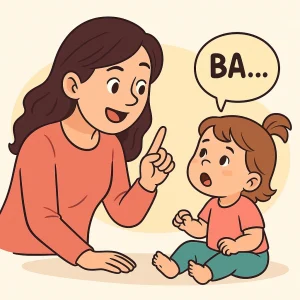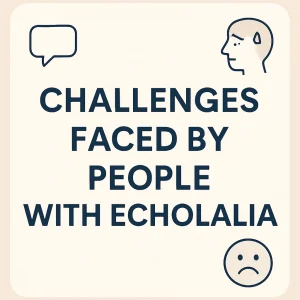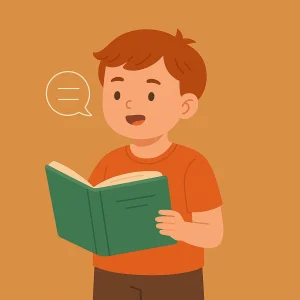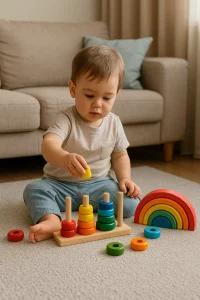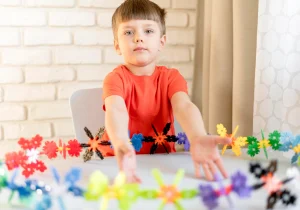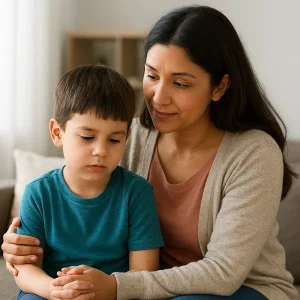Does Your Child Need Articulation Therapy? – Early Signs to Know
By Rajini D
Last Updated: December 21, 2024
Welcome to the essential guide on articulation therapy—a cornerstone of child development. This therapy empowers children to express themselves clearly, enhancing their ability to communicate effectively. Here, we’ll uncover the early signs that might indicate your child could benefit from articulation therapy and explore how timely intervention can bolster their communication skills. Join us as we delve into the signs and solutions that support your child’s journey to becoming a confident communicator.
Understanding Articulation Therapy for Children
What is Articulation Therapy?
Articulation therapy is a specialized form of speech therapy aimed at helping children develop clearer speech. It focuses on correcting specific speech sound errors, ensuring that each sound is pronounced correctly. The therapy involves a variety of techniques, including exercises to strengthen the muscles used in speech, teaching proper placement of the tongue and lips, and practicing sounds in different words and settings.
Read More: Top Articulation Exercises You Can Do at Home for Clearer Speech
Goals of Articulation Therapy
The primary goal of articulation therapy is to improve a child’s speech clarity, making it easier for them to communicate effectively with others. This therapy aims to:
- Enhance speech sound production.
- Increase understanding and use of the natural rules of speech.
- Boost confidence in communication abilities.
Impact of Early Speech Intervention
Starting articulation therapy early can have profound effects on a child’s development. Early intervention:
- Supports clearer communication, reducing the frustration often experienced by children who struggle to express themselves.
- Helps prevent potential reading and academic challenges that are associated with unclear speech.
- Encourages better social interactions, as clear speech allows children to engage more confidently with peers.
Identifying Early Signs of Articulation Needs
Understanding Speech and Language Milestones
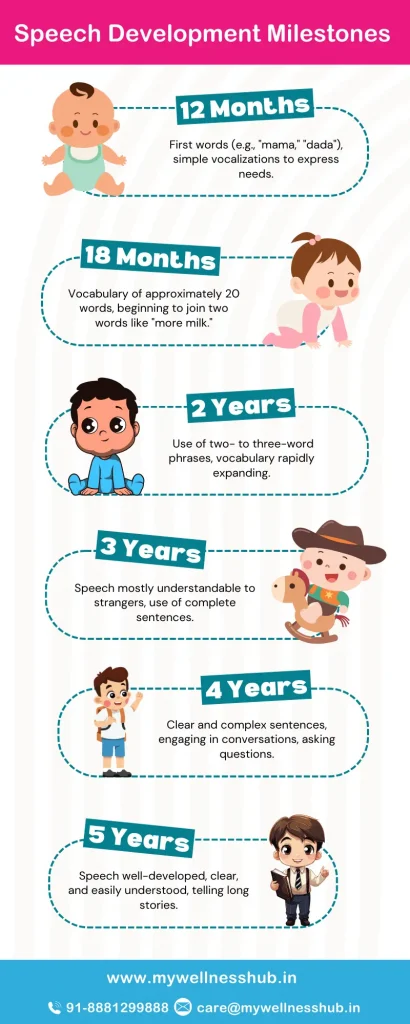
Recognizing whether your child is on track with their speech and language development is the first step in identifying potential articulation needs. Here’s a quick guide to typical milestones that can help you monitor progress:
- By 12 months: Babies should start using simple words like “mama” and “dada,” and respond to their names and common verbal requests.
- By 2 years: Toddlers should be using at least 50 words and start combining two words to form simple sentences like “more milk.”
- By 3 years: Children should be speaking in longer, more complex sentences and be mostly understandable to strangers.
Speech Development Milestones
| Age | Expected Milestones | Parent Tips |
|---|---|---|
| 12 Months | First words (e.g., “mama”) | Encourage by naming familiar objects. |
| 18 Months | 20-word vocabulary, two-word phrases | Expand vocabulary through reading together. |
| 2 Years | Uses 50 words, begins using pronouns | Engage in simple conversations. |
| 3 Years | Speaks in short sentences | Practice new words during daily routines. |
| 4 Years | Tells simple stories | Encourage storytelling with picture books. |
| 5 Years | Speech well-developed and clear | Discuss varied topics to enrich language. |
Signs Your Child May Benefit From Articulation Therapy
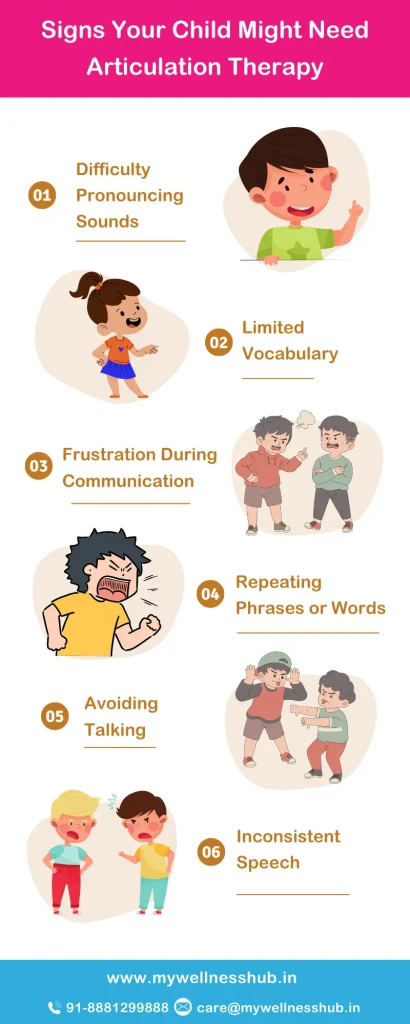
Early detection of articulation issues can make a significant difference in a child’s communication skills. Here are some signs that might indicate your child could benefit from articulation therapy:
- Difficulty Pronouncing Sounds: If your child often mispronounces sounds (e.g., saying “wabbit” instead of “rabbit”), they may have articulation difficulties.
- Limited Vocabulary: A noticeably smaller vocabulary for their age can be a sign of underlying issues with speech clarity or oral motor skills.
- Frustration During Communication: Children who get easily frustrated when trying to communicate or avoid speaking might be struggling with articulation.
- Frequent Misunderstandings: If people frequently ask your child to repeat themselves because they can’t understand what was said, this could indicate a need for therapy.
- Omitting Sounds: Skipping consonants or distorting sounds more frequently than other children their age might also be a sign.
How Articulation Therapy Can Help
Exploring Methods and Techniques in Articulation Therapy
Articulation therapy employs a variety of targeted techniques to help children overcome difficulties in producing specific speech sounds. Here’s how it works:
- Phonetic Placement Method: Therapists teach children how to place their tongue, lips, and jaw to produce specific sounds. This might involve using tools like mirrors for visual feedback or touch cues to guide movements.
- Sound Repetition: Starting with sounds in isolation and gradually increasing complexity to syllables, words, and sentences, this technique reinforces correct pronunciation through repetitive practice.
- Auditory Bombardment: Children listen to the therapist produce a target sound in a variety of words and contexts to enhance their auditory perception of the sound.
- Minimal Pair Therapy: Uses pairs of words that differ only by the target sound, helping children discern the distinction between sounds and understand the impact of correct pronunciation on meaning.
Addressing Common Speech Issues
Articulation therapy is designed to tackle specific speech issues that can hinder effective communication:
- Correcting Sound Errors: Whether it’s substituting one sound for another or omitting sounds altogether, articulation therapy works to correct these errors which are crucial for clear speech.
- Increasing Intelligibility: The clearer a child’s speech, the easier it is for others to understand them, reducing frustrations and improving their ability to communicate effectively in social and educational settings.
Overall Benefits for Children
The advantages of engaging in articulation therapy extend beyond just clearer speech:
- Enhanced Confidence and Self-Esteem: As children see improvements in their ability to communicate, their confidence in social interactions increases.
- Improved Academic Performance: Clear speech is closely tied to reading and academic success. Articulation therapy helps children articulate sounds correctly, which is foundational for phonics and reading.
- Better Social Skills: Being understood by peers and adults can significantly improve a child’s social interactions and relationships.
The Role of WellnessHub in Articulation Therapy
Commitment to Supporting Speech Development
At Wellness Hub, we are dedicated to nurturing clear and confident communication for children through articulation therapy. Recognizing the profound impact that fluent speech can have on a child’s overall development and self-esteem, we strive to provide comprehensive support and innovative solutions to families navigating speech challenges.
Resources and Tools Offered by WellnessHub
We offer a suite of resources designed specifically to enhance articulation therapy:
- Specialized Apps: Our apps feature interactive games and exercises that make learning and practicing speech sounds engaging for children. These tools are developed with input from experienced speech therapists to ensure they meet the needs of young learners with speech difficulties.
- Therapy Tools: From sound cards to digital storybooks that emphasize key phonetic sounds, our therapy tools are tailored to help children master the articulation of challenging sounds in a fun and effective way.
- Expert Advice: WellnessHub connects you with certified speech-language pathologists who provide personalized tips and guidance. Through our platform, parents can access expert advice to better understand their child’s needs and learn strategies to support their speech development at home.
Conclusion
Recognizing early signs of speech issues is crucial for your child’s development. If you notice signs like difficulty pronouncing words or limited vocabulary, don’t hesitate to seek help. Early intervention by a speech therapist can make a huge difference. At Wellness Hub, we’re here to support you with tools and expert guidance designed to enhance your child’s communication skills. Check out our resources and let’s ensure your child can express themselves clearly and confidently.
Frequently Asked Questions:
1. What is articulation therapy for children?
Articulation therapy is a type of speech therapy that helps children learn how to produce specific sounds correctly. This therapy aims to correct mispronunciations which can affect a child’s ability to communicate clearly. Through various exercises and techniques, speech-language pathologists work with children to strengthen the muscles involved in speech, teach proper placement of the tongue and lips, and practice sound production.
2. How do I know if my child needs articulation therapy?
Consider articulation therapy if your child frequently mispronounces words, substitutes one sound for another, adds extra sounds to words, or omits sounds entirely. Other indicators include difficulties in being understood by others, frustration when speaking, or avoiding speaking.
3. At what age should my child start articulation therapy?
While children develop at their own pace, articulation therapy is typically recommended if speech issues persist beyond the expected age for certain speech milestones. For example, most children can pronounce most sounds correctly by age 4. If issues are noticeable beyond this age, consulting a speech therapist might be beneficial.
4. What are the signs that my child might have an articulation disorder?
Signs of an articulation disorder include consistently mispronouncing vowels or consonants, leaving off sounds in words, adding extra sounds to words, or distorting sounds. This might be more apparent when your child struggles to be understood by people outside of the immediate family.
5. Can articulation therapy really help my child?
Yes, articulation therapy has been proven to be effective in helping children improve their speech clarity. This improvement can lead to better communication with peers and adults, enhanced confidence, and improved academic performance as their ability to express themselves clearly increases.
6. What techniques are used in articulation therapy?
Common techniques include the phonetic placement method, which teaches children where to place their tongue, lips, and jaw to make sounds correctly; auditory bombardment, where children listen to the therapist say the target sound in different words; and minimal pair therapy, which uses pairs of words like “look” and “book” to help children hear the difference between sounds.
7. How long does articulation therapy take to show results?
The length of therapy varies depending on the child’s initial speech challenges, age, consistency of therapy, and practice at home. Some children show noticeable improvement within a few months, while others may need longer to make significant progress.
8. Where can I find resources for articulation therapy?
WellnessHub offers a wide range of articulation therapy resources, including interactive apps, educational materials, and access to professional speech therapists. These tools are designed to support both in-person and at-home therapy sessions.
9. What can I do at home to support my child’s articulation therapy?
Supporting your child’s articulation therapy at home can be very effective. Engage your child in activities that promote talking, such as reading books aloud, singing songs that emphasize different sounds, and playing games that involve word use. Consistent practice can reinforce the skills learned during therapy sessions.
10. Should I consult a speech therapist if I’m concerned about my child’s speech?
Absolutely. If you have concerns about your child’s speech clarity or if they’re not meeting developmental milestones for speech, a consultation with a certified speech-language pathologist is advisable. An SLP can assess your child’s speech patterns, diagnose any articulation disorders, and create a customized therapy plan tailored to their needs.
About the Author:
Rajini Darugupally
M.Sc., Speech-Language Pathologist (9+ years of experience)
Rajini is a passionate and dedicated Speech-Language Pathologist with over 9+ years of experience, specializing in both developmental speech and language disorders in children and rehabilitation in adults. Currently, at Wellness Hub, she thrives in a team environment that values innovation, compassion, and achieving results for their clients.
Book your Free Consultation Today
Parent/Caregiver Info:
Client’s Details:
* Error Message
